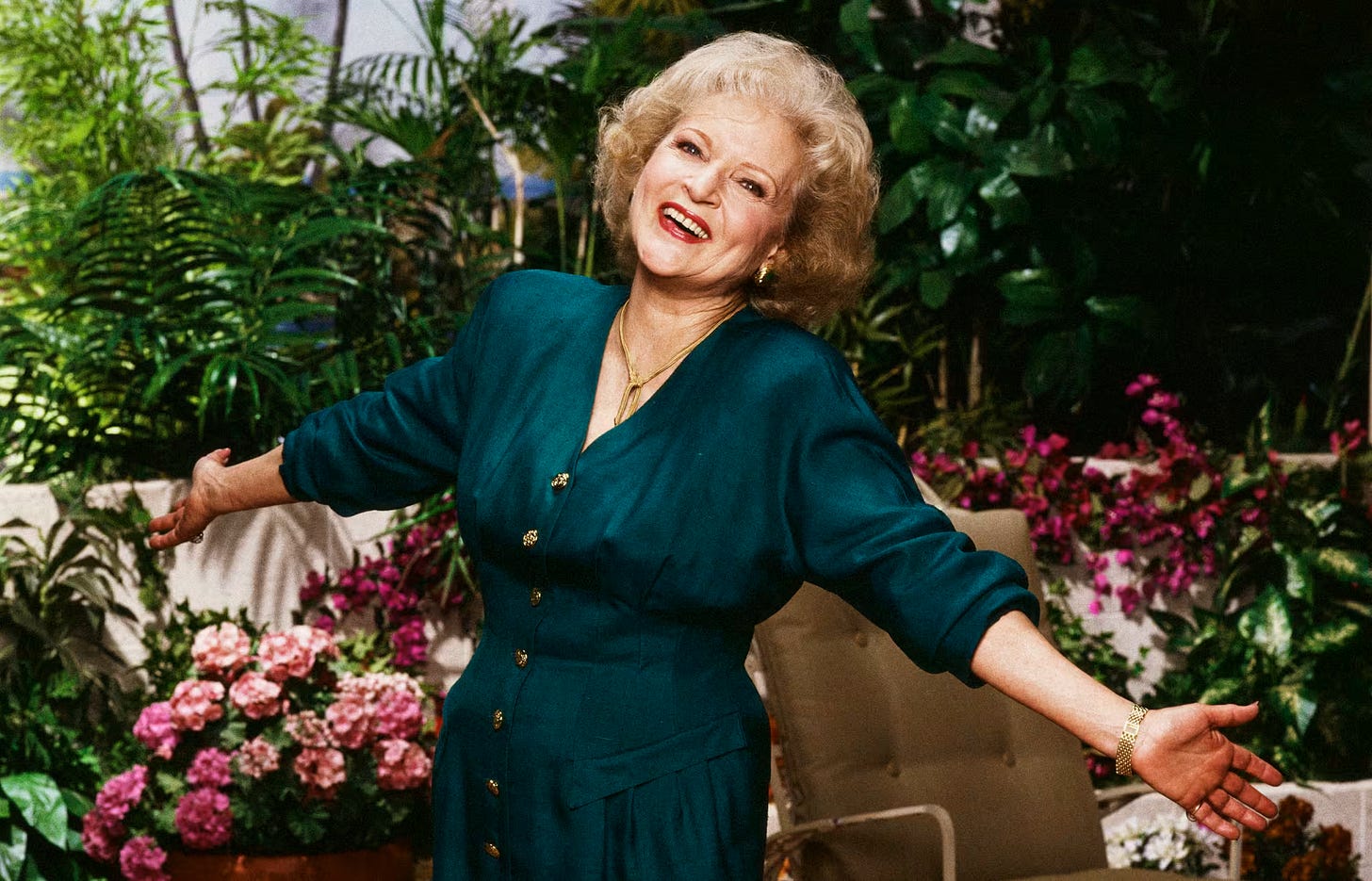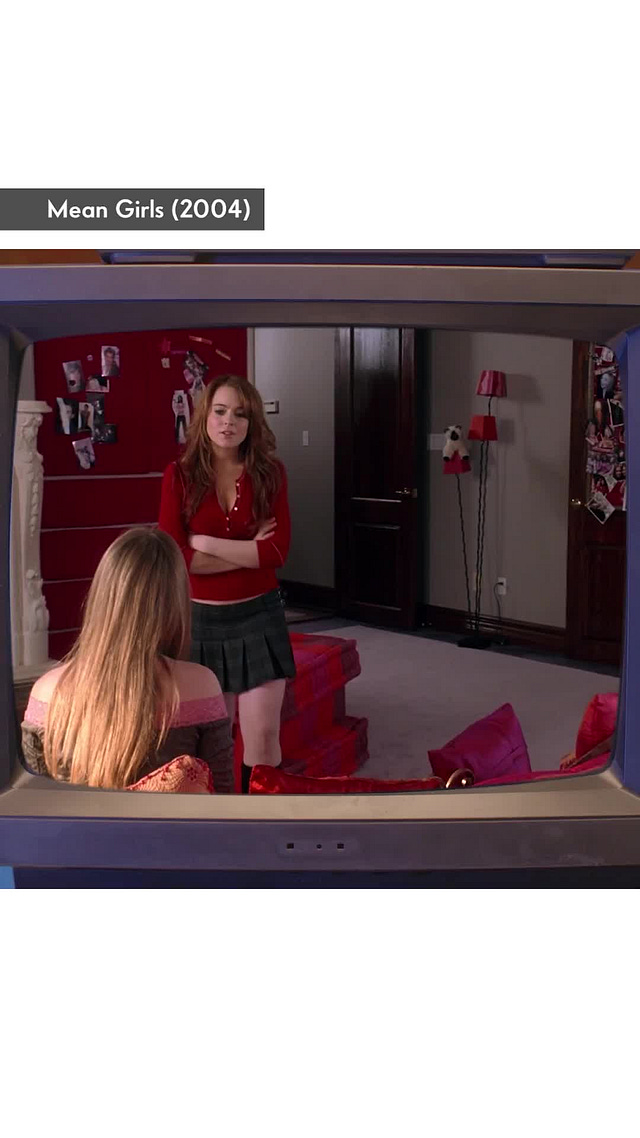Do You Have to Be Smart to Play Dumb?
From Henry Fonda and Betty White to Amanda Seyfried and Paul Rudd, some of our quickest wits have given stand-out performances as airheads.
Betty White as Rose Nylund enters the Golden Girls’ famous kitchen and addresses her two costars, Bea Arthur as the snarky Dorothy and Rue McClanahan as the man-crazy Blanche. “Well, you’re not gonna believe this. I’ve just been talking on the phone for a half hour, and guess what.”
“You forgot to dial first?” Blanche deadpans.
“No!” an insulted Rose says.
“You held the receiver upside down,” Dorothy guesses. When Rose denies this, too, Dorothy continues: “It wasn’t even the phone, it was the TV remote control.”
“No.”
“A shoe?” Blanche asks.
“Blanche, please, I’m not an idiot.” A pause, and then the payoff: “The TV has a remote control?”
The Golden Girls ran from 1985-92, and it was hardly the first or the last to make a “dumb” joke. In fact, the simpleton stereotype has been a staple since at least as far back as Shakespeare’s fools. Though if you’ve seen, say, King Lear, you know the fool is often one of the smartest people in the room. And while actors are often ridiculed as vacant, beautiful vessels, it might take a particular kind of smarty pants to play convincingly in the shallow end; if it’s not clear that they’re in on the joke, it’s more likely to make us feel uncomfortable, rather than amused. Or are we fooling ourselves when we assume it takes brains to play dumb?
Casting director Marci Liroff, whose impressive resumé includes assembling the cast of the original Mean Girls film, has a clear answer when it comes to why she slotted Amanda Seyfried into the role of airhead Karen: “You think that you when you cast a dumb blonde that you should cast an actual dumb blonde. And it doesn't really work that way. You're really meant to find someone that is incredibly sharp.” In fact, Seyfried said she channeled perhaps the quintessential “dumb blonde” for the role—Marilyn Monroe, who struggled for respect throughout her career. And I have a theory that Karen, as a character, might be playing dumb herself, to stay out of Queen Bee Regina George’s firing line. But we’ll never truly know.
 Tiktok failed to load.
Tiktok failed to load.Enable 3rd party cookies or use another browser
I began thinking about this question after watching Henry Fonda play dumb in a way that went beyond believable, to almost concerning, in the 1941 film The Lady Eve. In it, he meets a beautiful con artist played by Barbara Stanwyck on a cruise. When he encounters her later on land, she’s pretending to be a whole other person, a la any number of Shakespeare comedies, but the film is just modern enough to make you worry about Fonda’s character’s mental state if he believes her. Fonda is so, so good, as is Stanwyck as what can only be described as a brilliant psychopath, that you exit the film worried about everyone involved. On the other hand, we know that he played no less than Abraham Lincoln two years earlier, and his children are among the intellectual heavyweights of actors—Jane Fonda, Oscar-winning activist and producer, and Peter Fonda, writer, actor, and Oscar nominee.
The history of film, and perhaps even more so of television comedy, is rife with “dumb” archetypes: Chrissy from Three’s Company, Woody from Cheers, Kelly from Married … With Children, Joey from Friends, Jason from The Good Place, Summer from Girls 5 Eva.
Parks and Recreation mastered the trope, featuring the doofusy Andy, played by Chris Pratt, in the main cast, as well as a variety of not-all-there supporting characters. To Paul Rudd, who played the vacant city council candidate and candy empire heir Bobby Newport on the series, part of the key to playing dumb is being smart enough to know that there’s more than one kind of not-smart character, and that you have to understand why they are the way they are. “There’s an earnestness to that character, and there’s a kind of guilelessness,” he told me. “It’s like, when you’re doing something funny, act like you don’t know it’s funny. Or if you’re [supposed to be] drunk—you don’t act like you’re drunk. Bobby Newport, it’s just almost like he has no irony, because he doesn’t understand it. And there’s just something kind-of undercooked. There’s an innocence.”
Going back farther in TV history, actor Ted Knight worried a lot about being known for the character of Ted Baxter, a vacuous and dimwitted news anchor. He was a standout character on the show who got to deliver some of the best punchlines. But his costar Gavin MacLeod remembered him complaining, “Why did they have to name him Ted? Why did it have to be my name?”
Knight eventually took his gripes to the show’s co-creator, Allan Burns, asking for changes that might ground the character a bit, and make him even a touch smarter. “Oh, come on, Ted,” Burns told him. “You’re beloved! People know that Carroll O’Connor isn’t that racist bastard, you know? On All in the Family, that bigoted guy? People know that he’s not that. People know that you, Ted Knight, are not Ted Baxter.”
Producer-writer Ed. Weinberger showed up and tried to pitch in on talking Knight down by holding forth on the grand history of great clowns in literature and theater, going back to the masked comic character, Brighella, who was part of the 16th century Italian tradition of Commedia Del Arte. Andrew Agucheek and Toby Belch from Shakespeare’s Twelfth Night, too!
Then co-creator James L. Brooks walked in, unaware of the conversation, and exclaimed, “Ted Knight! How does it feel to be one of the great schmucks of all time?”
I can certainly understand Knight’s pain, but I would hope that most people know that playing dumb that well is no joke. Liroff is right; the people who are most fun to watch playing dumb are usually among the smartest actors out there. Audiences want to feel that the actor is in on the joke, not that an airhead is being exploited before their eyes. “Everyone thinks it’s easy playing dumb,” wrote Ken Levine, an Emmy-winning writer who worked on classics such as M*A*S*H, Cheers, and Frasier. “It’s not. To make a character dumb but real is exceedingly hard. The irony is you have to be incredibly smart to play dumb. You need expert timing, you need to really commit to the character, and you have to make us believe that the stupid things you say are not stupid to you.”
Marilyn Monroe, you deserved more credit.
Like what you’re reading? Subscribe or upgrade now!







This makes total sense. I agree with Ted Knight—don’t saddle him with the same name! The lines are too blurry in TV because they come into our homes, and I bet there were fans who thought he was like his character. Judging by what people say to celebs these days, it’s still common for fans to expect them to be who they play.
One of my favorite dummies is Donald Glover in Community—artistic genius in real life, gets his brain wrinkled easily in character. The Big Bang Theory is an interesting case study for the idea of who plays what types of intelligence—Penny is the “dumb” one, but she has the emotional intelligence, while the others have the academics but not the social skills. New Girl is another fun one to think about—no real designated “dumb” character because they all have their moments, right? Maybe the same with The Office?
In the commentary for Spin City, I remember Michael J. Fox talked about his theory that Heather Locklear being beautiful made her physical comedy that much funnier. Gotta give the good-looking people flaws like klutziness so they’re relatable, I guess! It’s interesting that that seems to be the case with the ditzy characters too—not as a rule, but this list has some really pretty stupid characters. Look at Matt Bomer: In sitcoms—The New Normal, Will & Grace, Mid-Century Modern—he’s a loveable lunkhead, but in his dramas he’s often playing the smartest guy in the room.
I remember when it clicked that Christina Applegate was not dumb on "Married With Children." I started watching it just for her - her timing was so brilliant!